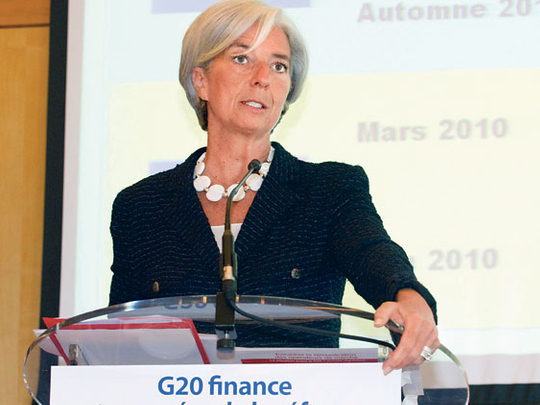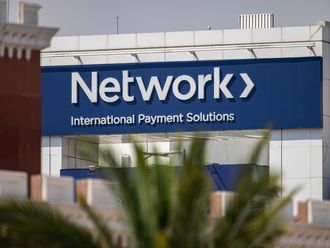
Seoul: Europe's debt woes are set to dominate talks as finance mandarins from the newly powerful Group of 20 (G20) of rich and developing nations meet this week to push ahead with reforms of the global economy.
The continent's sovereign debt crisis has seemed like an echo of 2008 when a banking system breakdown in the United States pushed the world into its most serious economic crisis in eight decades and raised fears of another Great Depression.
World markets have tanked amid uncertainty over Europe's government finances. The Dow Jones industrial average declined 7.9 per cent in May and has further extended losses in June while the euro has sharply weakened amid fears for the single currency's viability.
Still, the volatility has not been on the scale of the market mayhem in 2008 following the collapse of Lehman Brothers Holdings. But it serves as a reminder of the massive task the G20 has set for itself: reforming the global financial system to prevent another crisis and ensure economic stability.
South Korea, which assumed the rotating G20 chair this year, is hosting the meeting of finance ministers and central bank governors in the southern port city of Busan on Friday and Saturday.
The G20 is working on policy recommendations aimed at achieving what it calls "strong, sustainable and balanced growth" to hand to leaders at a pair of summits scheduled for this year — one in Canada later this month and another in Seoul in November.
The forum has been trying to come up with a new financial architecture to manage the global economy in the wake of the 2008 crisis. Proposals include a bank tax, setting new capital standards and establishing "financial safety nets" to help bolster countries such as host South Korea, which have been vulnerable to the whims of traders who can send billions of dollars across borders at the press of a button.
The G20 has agreed at a series of summits in the United States and Britain since late 2008 on the need for tighter financial regulation to prevent the kind of Lehman-induced turmoil that could potentially sink the global economy.
Coming up with solutions, however, has proved a challenge.
The issue of a bank tax to pay for future bailouts has proved divisive. The US and European countries favour the move, while others such as Canada and Australia — whose banks survived the global crisis intact — oppose it.
The G20, founded in 1999, consists of rich countries such as the United States, Japan, and Germany, emerging powers China, Brazil and India, and developing economies Indonesia and South Africa. Top oil producer Saudi Arabia is also a member.
Besides following up on issues discussed at their last finance meeting in Washington in April, the G20 will talk about the European debt crisis, said Yim Jong-yong, a top official at South Korea's Ministry of Strategy and Finance.
They will also be "sending some message of the G20 to the market regarding the European risk", Yim said in an interview last month.
Some, however, are sceptical the G20 can accomplish anything regarding Europe's economic problems.
Stephen Lewis, senior economist at London-based Monument Securities, said the key problem for the nations using the euro is that they are hamstrung by the inflexibility imposed by the single currency.
Destabilising influence
"But G20 finance ministers cannot afford to recognize this, mindful as they must be of the potentially destabilising influence, not only in Europe but in the rest of the world, of any widespread loss of confidence in the euro arrangements," he said.
The US push for China to let the value of its currency, the yuan, appreciate to help address global trade imbalances has long hung over international finance meetings. However, it is doubtful that any G20 statement from Busan will press China on the issue.











